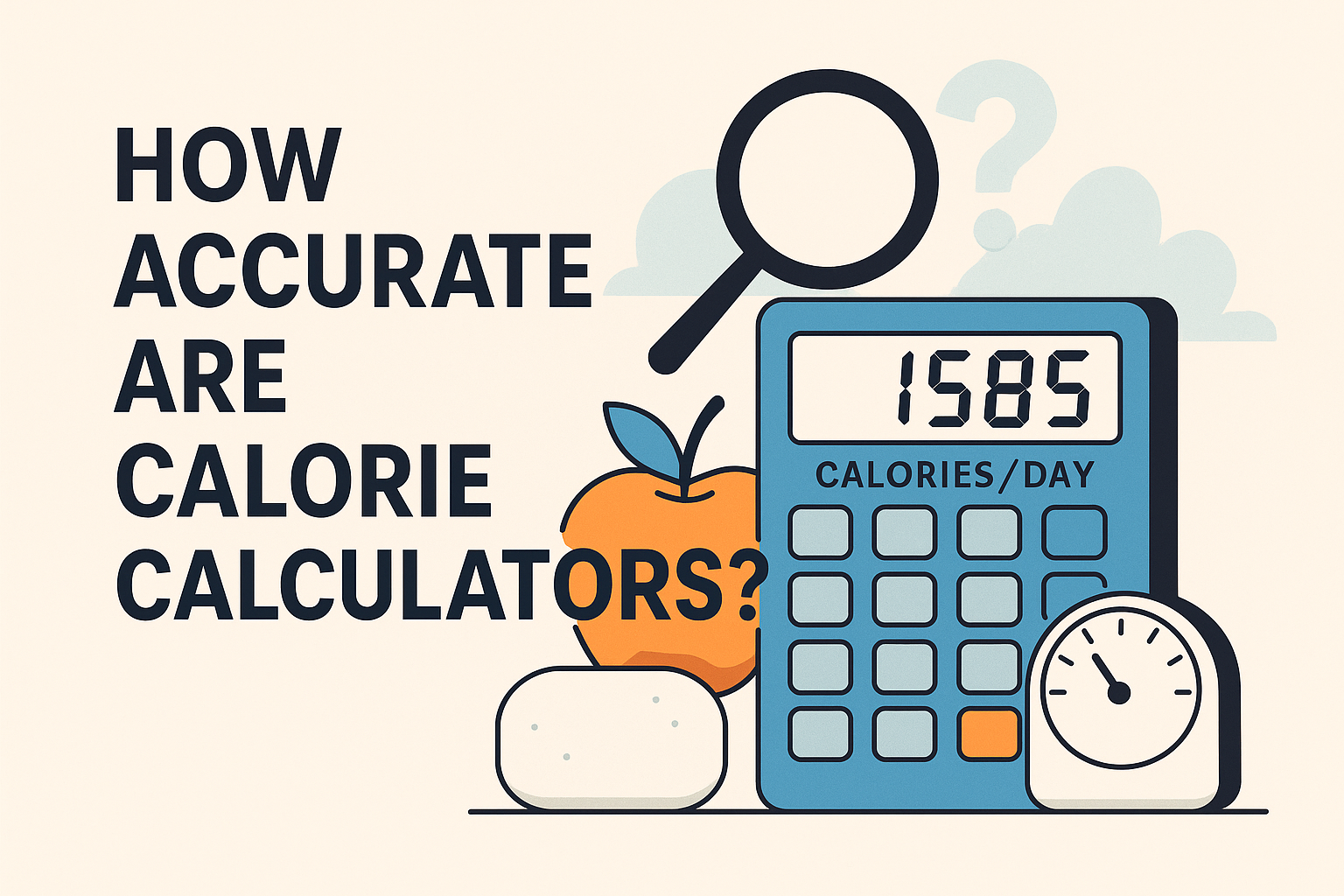
How Accurate Are Calorie Calculators?
Discover the science behind calorie calculators, their accuracy levels, and how to get the most reliable results for your fitness journey.
The Science Behind Calorie Calculators
Most online calorie calculators use established mathematical formulas to estimate your energy needs. The most common equations include:
- Mifflin-St Jeor Equation: Currently considered the most accurate formula for estimating BMR (Basal Metabolic Rate)
- Harris-Benedict Equation: An older but still widely used formula
- Katch-McArdle Formula: Takes lean body mass into account, which can be more accurate for athletic individuals
These formulas calculate your BMR - the number of calories your body needs at complete rest. Then, an activity multiplier is applied to estimate your TDEE (Total Daily Energy Expenditure).
Factors Affecting Accuracy
Several factors influence how accurate a calorie calculator will be for you personally:
1. Individual Metabolic Variations
Research shows that metabolic rates can vary by up to 20% between individuals of the same height, weight, age, and gender. This natural variation means calculators can only provide an estimate based on population averages.
2. Activity Level Self-Assessment
Most calculators ask you to select your activity level, which introduces subjectivity. Many people tend to overestimate their activity levels, leading to inflated calorie recommendations.
3. Muscle Mass Differences
Standard formulas don't account for body composition. Two people with identical height and weight but different muscle-to-fat ratios will have different caloric needs, as muscle tissue burns more calories than fat tissue.
4. Age-Related Changes
As we age, our metabolic rate decreases. While calculators factor in age, they may not fully capture the complex metabolic changes that occur throughout life.
How Accurate Are the Results?
Research suggests that the most accurate formulas (like Mifflin-St Jeor) provide estimates within 10% of your actual metabolic rate. For many people, this means results could be off by 200-300 calories in either direction.
A 2005 study published in the Journal of the American Dietetic Association found that the Mifflin-St Jeor equation was accurate for about 82% of the study population.
Improving Accuracy
To get more accurate results from calorie calculators:
- Be honest about your activity level - When in doubt, select a lower activity level
- Use multiple calculators - Try several different calculators and look for consensus
- Track and adjust - Use calculator results as a starting point, then track your weight changes and adjust intake accordingly
- Consider professional testing - For the most accurate assessment, indirect calorimetry testing (performed by healthcare professionals) can measure your actual metabolic rate
When to Trust Calculator Results
Calorie calculators work best as a starting point for your nutrition plan. The true test comes from implementation:
- If you're maintaining weight while following the calculator's maintenance calories, the estimate is likely accurate
- If you're losing weight too quickly or not at all, adjustments are necessary
- Your energy needs change as your weight, activity level, and health status change, so recalculate periodically
Conclusion
Calorie calculators provide a helpful estimate rather than an exact prescription. With an understanding of their limitations and proper implementation, they can be valuable tools in your health journey. The key is to use them as a starting point, monitor your progress, and make adjustments based on real-world results.
Remember that health goes beyond calories - nutrient quality, meal timing, sleep quality, and stress management all play important roles in overall wellbeing and weight management.
Have you found calorie calculators accurate for your needs? Share your experience in the comments below!